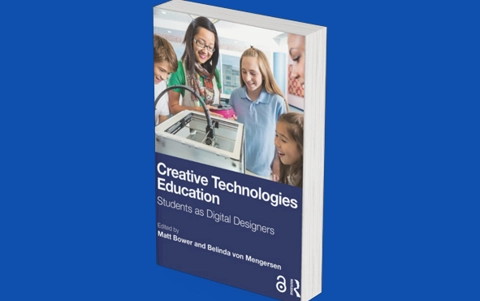Creative Technologies Education
This Open Access book with contributions by 45 academics from Australian Technologies Teacher Educators Network (ATTEN) offers research-based insights and practical strategies for teaching creative Technologies, focusing on students as digital designers. Topics include multimedia, game design, AR/VR, robotics, 3D fabrication, assessment, inclusion, and foundational teaching concepts.
Additional details
| Year band(s) | Foundation, 1-2, 3-4, 5-6, 7-8, 9-10 |
|---|---|
| Content type | Article or research |
| Format | Web page |
| Core and overarching concepts | Specification (decomposing problems), Design thinking, Computational thinking |
| Technologies & Programming Languages | AR / VR, Scratch, Python, Robotics and drones |
| Keywords | Evidence-based research |
| Integrated, cross-curriculum, special needs | Critical and creative thinking, Digital Literacy |
| Organisation | Routledge |
| Copyright | © 2026 Routledge, Taylor & Francis Group. Creative Commons BY-NC-ND 4.0 |
Related resources
-
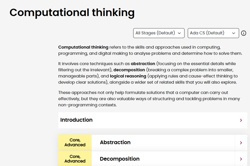
Computational thinking
This comprehensive online guide, provides a background to computational thinking which refers to the skills and approaches used in computing, programming, and digital solutions to analyse problems and determine how to solve them.
-
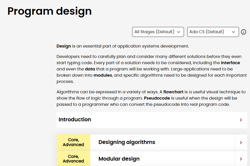
Program design
This comprehensive online guide, explores ways specific algorithms are designed for large applications, considering data and user interface. Learn how algorithms can be expressed as a flowchart and pseudocode, and validated and verified.
-

Kids should code: why 'computational thinking' needs to be taught in schools
This article provides a rationale as to why students should be taught 'computational thinking'.
-
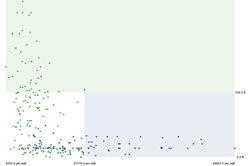
A Visual Introduction to Machine Learning
This site explains how 'machine learning' is used to make highly accurate predictions using interactive visualisations.
-

How to develop computational thinkers
This article explains computational thinking with relevant examples and links to useful resources.
-
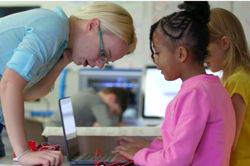
Computational Thinking for a Computational World
As computational technology advances, it is imperative that we educate young people and working adults to thrive in a computational world. In a computational world, what is important to know and know how to do?
